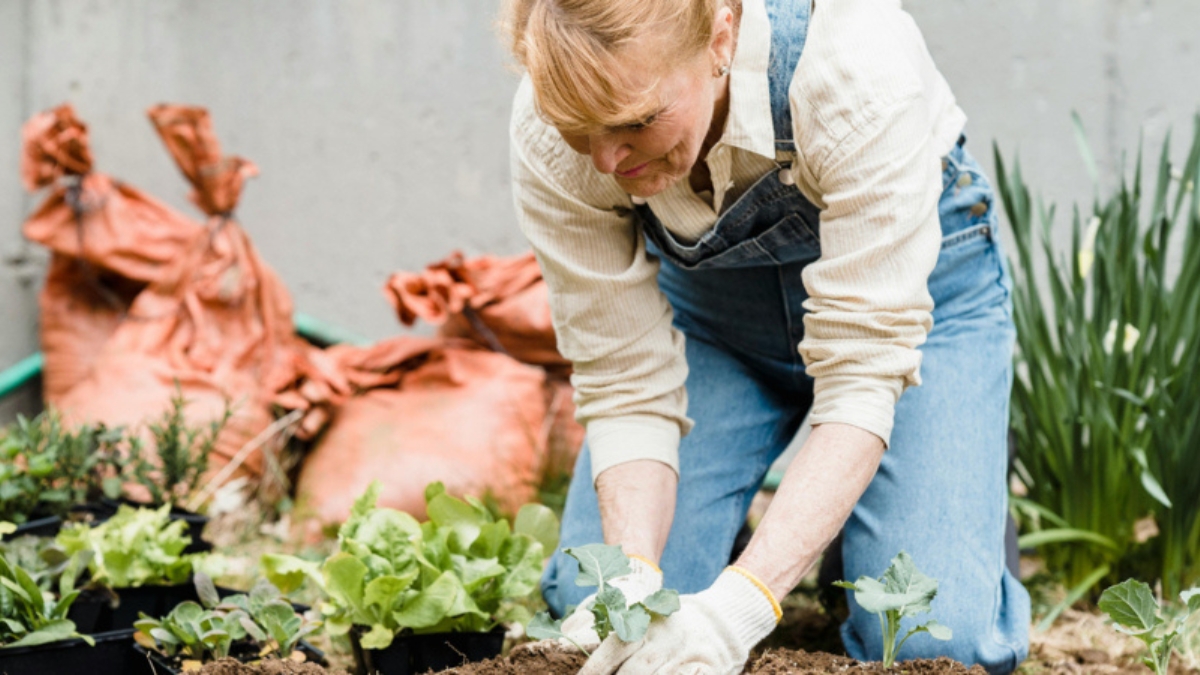
Gardening in Your Golden Years: Benefits and How to Get Started
Spring has sprung and it’s time to start planting! Gardening can be a fulfilling activity at any age, but the benefits extend far beyond the plants you grow. The sunshine and fresh air are instant mood boosters and tending to your plants each day can actually be a great way to stay active. Learn more below about how gardening can improve your mental and physical health in addition to tips that will help make planting a breeze this spring.
Explore the Benefits of Gardening
- Calm your mind: Gardening can be a very peaceful activity for many people. The repetitive nature of watering plants or pulling weeds, paired with getting outside, can help you take your mind off things and de-stress.
- Maintain strength and mobility: Even the simple tasks of walking outside, bending down to tend to your plants, or picking up a hose can burn calories and help you maintain your flexibility, strength and balance which is important for preventing injuries, especially as we age.
- Stay social: Joining a community garden or a gardening club is a great way to make new friends while doing something you love. The Chesapeake even has resident flower or vegetable gardens to take part in.
- Enhance mental health: Caring for plants provides a wonderful sense of purpose and a sense of accomplishment. Gardening allows an opportunity for continued learning, as you discover how to grow different types of plants and how they can be used. Some experts even think that the mental and physical activity of gardening can help prevent dementia.
- Improve physical health: The sun increases the body’s production of vitamin D which improves your ability to absorb calcium and boosts your immune system. Plus, gardening is considered a physical activity which helps manage blood pressure.
- Adopt healthier eating habits: Fruits and vegetables are filled with important nutrients that help keep us healthy. Growing your own can ensure that you always have a nutritious snack on hand.
View Our Gardening Tips
- Be prepared: It’s best to do some research before you start to figure out which plants you want to grow, what conditions they require, and how much space they need. For example, there are certain vegetables that grow well together and some that compete for resources and should be grown farther apart. You might also want to consider adding pollinator plants to attract beneficial insects or a fence to keep out any unwanted guests.
- Have the right tools: The right tools can make all the difference in your gardening journey. It can be harder to bend over, kneel down, or carry heavy objects as we age.
- Raised garden beds, planters or long-handed tools: All of these help eliminate the need to bend over or crouch down when seeding or weeding. The Chesapeake even offers ready-to-plant raised garden beds.
- Kneeling pad or gardening seat/stool: A kneeling pad provides extra comfort if you do have to get down in the dirt and a seat or stool offers a great place to rest.
- Garden trolley: A garden trolley makes it easy to carry all of your tools to and from the garden.
- Irrigation system: If watering your plants every day is becoming too difficult, look into an irrigation system that does the work for you.
- Stay safe in the sun: When spending time outside, it’s important to protect your skin and stay hydrated. Make sure to wear a hat, sunglasses and sunscreen, especially around midday when the sun is the strongest.
- Opt for low-maintenance plants: You can also minimize upkeep by choosing native plants that thrive naturally in your climate or perennials which come back year after year.
Contact us to learn how you can enrich your mind, body and spirit through gardening.

